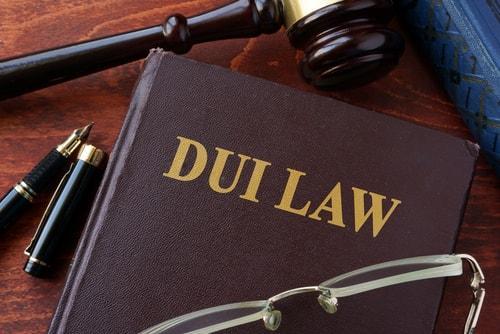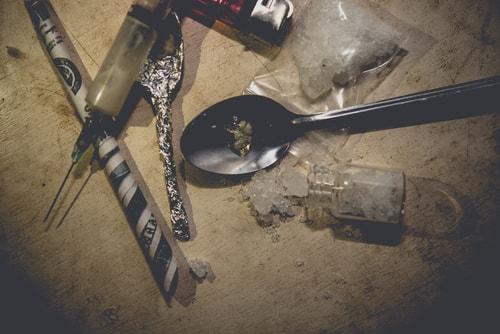Recent Blog Posts
Secretary of State Hearings and Reinstatement of Your Driver’s License Following an Illinois DUI
 There are many ways that you can lose your driving privileges in Illinois -- not paying child support, not taking care of parking tickets and not paying toll fees. However, the most common way Illinoisans lose their driving privileges is by being convicted of driving under the influence (DUI) or related charges. In Illinois, you are subject to an administrative license suspension, in addition to any criminal suspensions you may face. Failing a chemical test to measure your blood-alcohol content (BAC) and refusing to take a chemical test are two common DUI-related charges that result in a loss of driving privileges. In order to get your driving privileges back, you will have to attend an informal or formal hearing at the Illinois Secretary of State’s office.
There are many ways that you can lose your driving privileges in Illinois -- not paying child support, not taking care of parking tickets and not paying toll fees. However, the most common way Illinoisans lose their driving privileges is by being convicted of driving under the influence (DUI) or related charges. In Illinois, you are subject to an administrative license suspension, in addition to any criminal suspensions you may face. Failing a chemical test to measure your blood-alcohol content (BAC) and refusing to take a chemical test are two common DUI-related charges that result in a loss of driving privileges. In order to get your driving privileges back, you will have to attend an informal or formal hearing at the Illinois Secretary of State’s office.
Informal Hearings
If your driver’s license was suspended or revoked due to a DUI-related charge or conviction that did not involve a fatality and this was your first DUI, you do not have to attend a formal hearing and can attend an informal hearing. Informal hearings are held at certain driver services facilities throughout the state on a walk-in basis. You will provide the hearing office with all applicable documentation, which will then be sent to the main office in Springfield. The main office will mail you a letter stating the outcome of the hearing, which can be either a denial, a restricted driving permit or a full reinstatement of your driving privileges.
Chicago Man Charged with Hate Crime for Drawing Swastikas on Neighborhood Buildings
 Each year, the FBI puts together a report on crime statistics and one of their reports focuses on hate crimes in the United States. In 2106, the FBI reported that there were 6,121 hate crime incidents that took place in the U.S., with over half of those incidents stemming from racial or ethnic bias. About half of all racially or ethnically based hate crimes were those that were anti-black or African American. The prevalence of hate crimes has risen by a significant amount in the past few years and recently, a Chicago man was arrested on charges of drawing swastikas on buildings.
Each year, the FBI puts together a report on crime statistics and one of their reports focuses on hate crimes in the United States. In 2106, the FBI reported that there were 6,121 hate crime incidents that took place in the U.S., with over half of those incidents stemming from racial or ethnic bias. About half of all racially or ethnically based hate crimes were those that were anti-black or African American. The prevalence of hate crimes has risen by a significant amount in the past few years and recently, a Chicago man was arrested on charges of drawing swastikas on buildings.
Chicago Man Charged with Felony Hate Crimes
A 51-year-old man has been arrested and charged with multiple counts of hate crimes after the man is alleged to have drawn swastikas on multiple homes on the North Side. The man is being charged with two felony counts of hate crimes, along with three misdemeanor counts of criminal defacing of property. Chicago police say that the man was identified on home security video footage showing him using chalk to draw swastikas on garages and fences.
Illinois DUI Traffic Stops: What Happens Next?
 Seeing flashing red and blue lights in your rearview mirror usually causes panic or a sinking feeling of dread. If a police officer pulls you over because he or she suspects that you may have been drinking, you probably did something that caught their attention, which could have been as simple as forgetting to use your blinker while you were turning or as serious as swerving in and out of your lane. Most DUI stops in Illinois will follow the same procedure, but can vary depending on the individual officer and police department they are with. Being pulled over can be scary, but if you know what to expect, it can be a little less intimidating.
Seeing flashing red and blue lights in your rearview mirror usually causes panic or a sinking feeling of dread. If a police officer pulls you over because he or she suspects that you may have been drinking, you probably did something that caught their attention, which could have been as simple as forgetting to use your blinker while you were turning or as serious as swerving in and out of your lane. Most DUI stops in Illinois will follow the same procedure, but can vary depending on the individual officer and police department they are with. Being pulled over can be scary, but if you know what to expect, it can be a little less intimidating.
Timeline of a DUI Arrest
- You could have been stopped at a routine roadside safety check, or the officer could be stopping you because they have probable cause or reasonable suspicion that you are under the influence. Most of the time you will have broken a traffic law in some way.
How Orders of Protection Impact You in Illinois Domestic Violence Cases
 Domestic violence is a crime that is taken very seriously and has severe consequences for those who commit it. Though the type of punishments that offenders of domestic violence get are deserved, the extremely personal nature of the crime makes it difficult for those who are falsely accused to clear their name. In the state of Illinois, police officers are required to arrest a person if the officer has reason to believe that they have committed an act of abuse or neglect. Even if the officer makes no arrest during a domestic violence call, they must always fill out a police report with the alleged victim and the alleged suspect’s information and statements. If a person decides to file an order of protection against someone, this means they are telling the court that they have been abused and wish to seek charges against the abuser.
Domestic violence is a crime that is taken very seriously and has severe consequences for those who commit it. Though the type of punishments that offenders of domestic violence get are deserved, the extremely personal nature of the crime makes it difficult for those who are falsely accused to clear their name. In the state of Illinois, police officers are required to arrest a person if the officer has reason to believe that they have committed an act of abuse or neglect. Even if the officer makes no arrest during a domestic violence call, they must always fill out a police report with the alleged victim and the alleged suspect’s information and statements. If a person decides to file an order of protection against someone, this means they are telling the court that they have been abused and wish to seek charges against the abuser.
What Is Domestic Violence?
Though different states may have different definitions of domestic violence, Illinois defines domestic violence as any act of “abuse” perpetrated by a “family or household member.” An act of abuse can be:
Understanding Illinois’ Statutory Summary Suspension Laws
When you get your driver’s license in Illinois, you are agreeing to a number of things, such as carrying insurance when you drive, obeying all traffic laws and driving in a safe manner. What some Illinois drivers may not know is that when they obtain a driver’s license, they are also giving their implied consent to be subject to a chemical test, such as a test of the blood, breath, urine or other bodily substance, which is used to determine whether or not the driver is under the influence of alcohol or other drugs. When drivers are arrested for DUI and refuse to submit to these tests, they are subject to a statutory summary suspension of their driving privileges.
What Is a Statutory Summary Suspension?
In Illinois, when a driver is arrested for DUI and refuses to submit to chemical testing or fails a chemical test, he or she will automatically have their driving privileges suspended. Failing a test means that their blood-alcohol content (BAC) measured at a .08 or over or the THC content was either 5 or more nanograms per milliliter of blood or 10 nanograms or more per milliliter of another bodily substance. A statutory suspension is not a punishment for a DUI conviction-consequences for a conviction would be added to the suspension. Even if you challenge the arrest in court, the suspension is still in effect.
Illinois Theft Crimes
 Oftentimes people will use the terms theft, robbery, and burglary interchangeably, though under the law, these terms have very different meanings and each contains different consequences. These crimes all include a person taking or attempting to take property from another person, but the elements of these crimes differ, as well as the consequences for committing them. Theft is a general term used when property is stolen from a person without the intention to return it. If you are being charged with a theft crime, it is important to know what you are being charged with and the penalties that you face.
Oftentimes people will use the terms theft, robbery, and burglary interchangeably, though under the law, these terms have very different meanings and each contains different consequences. These crimes all include a person taking or attempting to take property from another person, but the elements of these crimes differ, as well as the consequences for committing them. Theft is a general term used when property is stolen from a person without the intention to return it. If you are being charged with a theft crime, it is important to know what you are being charged with and the penalties that you face.
What Constitutes Theft?
Theft is a broad term that can cover a variety of crimes. Theft encompasses any crime in which a person takes property from another person without the intention of returning it. In the state of Illinois, a person commits theft when they:
- Obtain unauthorized control over property of the owner;
- Use deception or threat to obtain control over property of the owner; or
Common Defenses to Sexual Assault Charges
 Being accused of a sex crime can be stressful and emotionally tolling for you, your friends and your family. Whether the accusation is true or not, being accused of a sex crime can not only cause problems between relationships with people in your life, but it can also cause problems at work or getting future jobs. Understanding common defenses to sex crimes can prepare you if you are facing these types of charges.
Being accused of a sex crime can be stressful and emotionally tolling for you, your friends and your family. Whether the accusation is true or not, being accused of a sex crime can not only cause problems between relationships with people in your life, but it can also cause problems at work or getting future jobs. Understanding common defenses to sex crimes can prepare you if you are facing these types of charges.
Innocence
One of the most common defenses to sex crimes is innocence, meaning that you are pleading that you did not commit the crime. This is perhaps the most basic defense in sexual assault cases. The defendant can argue that they couldn’t have committed the crime because they were in a different place at the time the crime was committed. This is called an alibi and must be supported by credible evidence that they could not have possibly committed the crime.
Defendants have also claimed that the victim misidentified them as the perpetrator of the crime. Just like an alibi, defendants must provide credible evidence to support their claim of misidentification. Oftentimes DNA evidence can be used to determine if the defendant was at the scene of the crime or not.
What You Need to Know about a Possession of Drug Paraphernalia Charge
 A person does not need to have physical drugs on their person to be charged with a drug-related crime. If an individual is charged with possession of drug paraphernalia, they may face a fine of up to $2,500 and a misdemeanor charge for a conviction in the state of Illinois. In order to avoid this outcome, a person must know what drug paraphernalia is and what the laws are surrounding it.
A person does not need to have physical drugs on their person to be charged with a drug-related crime. If an individual is charged with possession of drug paraphernalia, they may face a fine of up to $2,500 and a misdemeanor charge for a conviction in the state of Illinois. In order to avoid this outcome, a person must know what drug paraphernalia is and what the laws are surrounding it.
What Is Drug Paraphernalia?
Drug paraphernalia can include any item that can be used to inhale or ingest an illegal substance such as pipes, bongs, or cocaine spoons or vials. It also includes kits that can be used in the production of drugs, devices, and equipment that can be used to increase the strength of a controlled substance, adulterants, and diluents, or substances that can alter the potency of a drug.
Suspected drug paraphernalia may be seized by law enforcement without standard procedures, so long as there is probable cause that the item poses a threat to the safety or health of an individual or the public, and there is not adequate time to go through the typical legal process.
Four Types of Credit Card Fraud
 Credit card fraud can take many different forms, and can even occur by accident. Penalties for being convicted of credit card fraud are serious, and can result in a misdemeanor or felony charge. Four common types of credit card fraud allegations include:
Credit card fraud can take many different forms, and can even occur by accident. Penalties for being convicted of credit card fraud are serious, and can result in a misdemeanor or felony charge. Four common types of credit card fraud allegations include:
1) Failure to Obtain Consent of Cardholder
A cardholder must authorize use of the card by another person. This authorization can be either written or verbal. A cardholder can also designate an authorized user for their card, by including their name on the credit card account. Once the cardholder has formally authorized someone to use their credit card, the owner is responsible for any charges the authorized user incurs.
2) Misuse of Card
Credit card fraud can also include the transfer or sale of the physical credit card or conveying confidential information to someone who is not the primary cardholder. When a person is allowed access to a someone else’s card, it is intended for their use only, and cannot be shared with unauthorized users.
College Students and Prescription Drug Use
 A study conducted by the National Survey on Drug Use and Health found that one in four people, between the ages of 18 to 20, had used prescription drugs for non-medical purposes one or more times in their lives. Prescription stimulants like Adderall and Ritalin are one of the most commonly abused types of medication. Students may overestimate the benefits of using prescription stimulants and underestimate the risks, which can lead to negative consequences for the student’s health and personal life.
A study conducted by the National Survey on Drug Use and Health found that one in four people, between the ages of 18 to 20, had used prescription drugs for non-medical purposes one or more times in their lives. Prescription stimulants like Adderall and Ritalin are one of the most commonly abused types of medication. Students may overestimate the benefits of using prescription stimulants and underestimate the risks, which can lead to negative consequences for the student’s health and personal life.
Reasons Behind Drug Use
College students may believe that using prescription drugs will enhance their academic performance, but research has shown that this may not be the case. In fact, studies have found that college students who misuse prescription stimulant medication received lower grades than their peers.
Students may also use stimulants that are not prescribed to them for social reasons. They may use the drugs to stay up later in the night and to help them behave in a more outgoing manner. Other reasons college students may illegally use prescription stimulants are to lose weight or to experiment.







